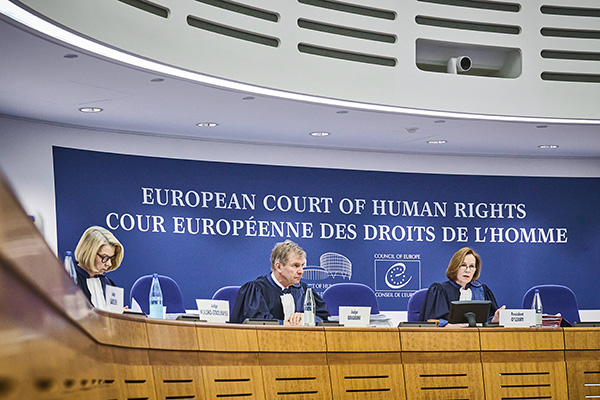The European Court of Human Rights (ECHR) Wednesday heard oral arguments in two cases in which the applicants are accusing their respective governments, France and Switzerland, of failing to take steps to prevent climate change.
According to both applicants, this failure constitutes a violation of their rights to life and to regard for family life as guaranteed by the European Convention on Human Rights.
In the first instance, the applicants are members of Verein KlimaSeniorinnen Schweiz, a Swiss organization. A collection of older women make up the members, with 33% of them being over 75. They are worried about how global warming will affect their health and way of life.
They said that the aggravation of health issues during heatwaves brought on by global warming is the specific susceptibility. The members assert that Switzerland’s government has not passed adequate laws to achieve global goals for combating climate change. They contend there is no viable domestic remedy and that they haven’t had access to a court.
Read Also: groups-deliberate-on-how-to-tackle-climate-change-ahead-of-cop28
Former French mayor Mr. Damien Carême will handle the second case. Carême is contesting the French court’s claim that he is not specifically impacted by the nation’s inaction on climate change.
He said that this failure directly affects him because there is a higher chance that his house will be negatively impacted in the future, specifically through flooding.
He stated that the failure has already had a detrimental impact, particularly by preventing him from peacefully planning his life there.
The positions of Switzerland and French governments are comparable. They argue that they cannot be held accountable for the consequences of climate change because they are not exclusively to blame for it.
Future climate change initiatives may be greatly influenced by the ECHR’s rulings. In 2024, the court is anticipated to rule on both cases.
Story adapted from Jurist
